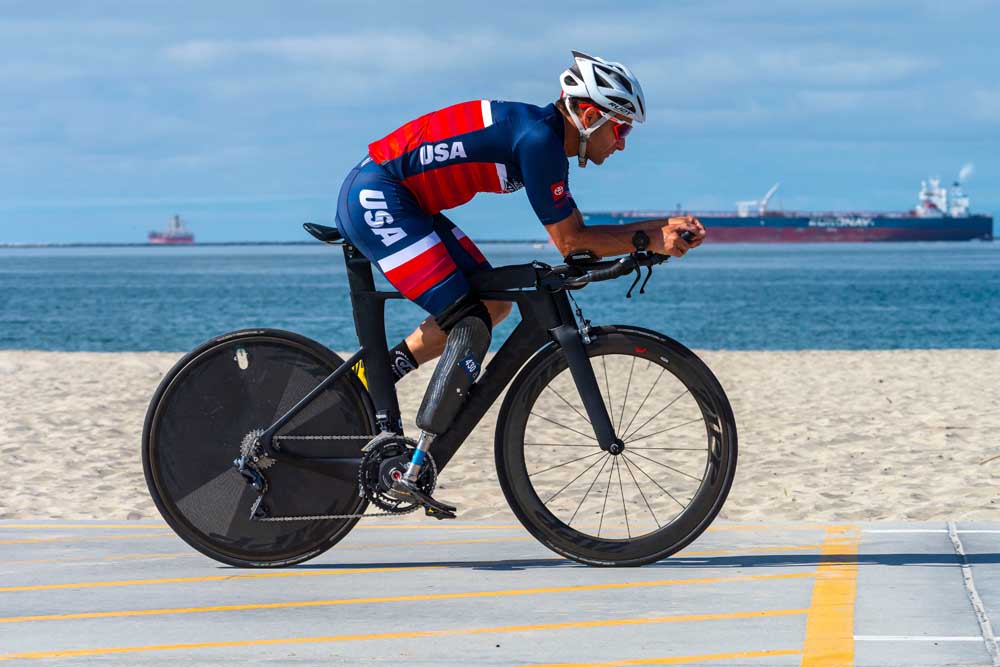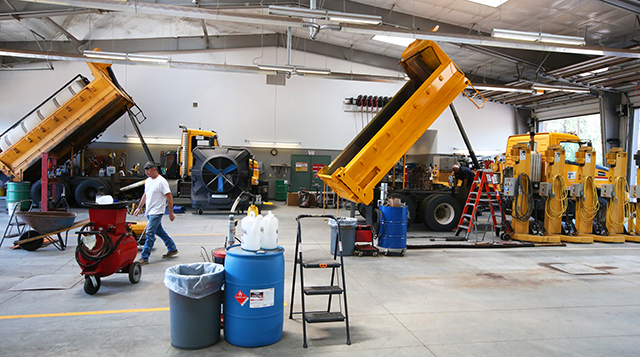Former Bend resident set to race the paratriathlon at the Tokyo Paralympics
Published 7:00 pm Saturday, August 21, 2021

- Jamie Brown, who lived in Central Oregon for five years before recently relocating to Colorado Springs, Colo., finished ninth in the paratriathlon on Friday at the Tokyo Paralympic Games.
Jamie Brown just missed qualifying for the paratriathlon at the sport’s Paralympic Games debut in Rio de Janeiro in 2016.
But the former Bend resident has made the U.S. Team for the Tokyo Paralympics, and he is ready to race for a medal.
Trending
“I just pulverized myself for four years to get to Rio, but I could never compete with the top guys,” Brown said. “The best thing that happened was that I didn’t quit. I had to get faster.”
The Tokyo Paralympic Games start on Tuesday, and Brown is set to race in the paratriathlon — which includes a 750-meter open-water swim, a 20-kilometer road bike ride and a 5K road run — on Friday.
Brown, 42, did most of his training over the last five years in Central Oregon before moving to Colorado Springs, Colorado, in February to take part in the Paratriathlon Resident Athlete Program at the U.S. Olympic Training Center.
Brown is a two-time World Paratriathlon Championships bronze medalist (2013, 2017) and a three-time USA Paratriathlon National Championship medalist (one gold, two silvers). He is currently ranked sixth in the world in paratriathlon in the PTS4 classification, for below-the-knee amputees and athletes with other relatively mild impairments.
“I’m feeling pretty fit,” Brown said earlier this week from Kailua-Kona, Hawaii, where he was training with the U.S. Paratriathlon Team before boarding a flight to Tokyo on Saturday. “A medal is definitely in my sights.”
Brown was born missing his fibula on his right leg and two fingers on his right hand due to a congenital birth defect. When he was 11 months old, doctors amputated his right leg near the ankle, and he has used a prosthetic ever since.
Trending
But Brown’s athletic ambitions were never compromised by his condition. At 9 years old, he taught himself how to pitch left handed and wear a glove on his right hand. He blossomed into a college pitcher for Chapman University in Orange, California, reaching the Division III College World Series.
Brown returned to his high school in San Diego to coach baseball for nine years before discovering the sport of paratriathlon through the San Diego-based Challenged Athletes Foundation.
He started competing in triathlon in 2010 and has since become one of the top paratriathletes in the world. He qualified for the Paralympics based on his results in major races over the past year, which earned him his No. 6 world ranking.
Paratriathletes are not allowed to wear any prosthetics during the swim. Brown puts on his bike prosthetic — which he fabricated from one of his old walking prosthetics — during the swim-bike transition, then changes to a bladelike, running-specific prosthetic for the run.
The paratriathlon in Tokyo will be staged on much of the same course as the Olympic triathlons a few weeks ago, including an open-water swim in Odaiba Bay.
Brown got the chance to race the course at a Paralympics test event in 2019.
“It should be a fast course, no more than an hour,” Brown said. “It’s a very quick, hard race.”
He knows it will be tough to defeat favorite and world champion Alexis Hanquinquant of France, who has not been beaten in three years in the paratriathlon PTS4 classification.
Also, at 42, Brown is racing against mostly much younger competitors.
“There’s not very many in their 40s,” Brown said. “As the sport (paratriathlon) has grown, it’s started to mirror the able-bodied sport (triathlon). It’ll keep getting younger. I’m not the oldest, but I am one of the oldest. But at the end of the day it’s what you do on the race course, not what your birth certificate says.”
Brown — who also coaches other triathletes and works in marketing for prosthetics when not racing or training — said that training during the COVID-19 pandemic was “a massive rollercoaster.”
He was able to ride his bike and run in Bend, but swimming was more difficult because most of the pools in Bend were closed. He made the decision in February to relocate to Colorado Springs.
“In order to train, I needed access to a pool,” Brown said. “That (Colorado Springs) just happened to be the one place where I could swim with my team, and basically train and live with my team. The pools in Bend weren’t necessarily open.”
He has not ruled out a return to Bend, but right now he is focused on winning a medal in Tokyo.
“It’s just a matter of me executing what I’m capable of on the day of the race.”








